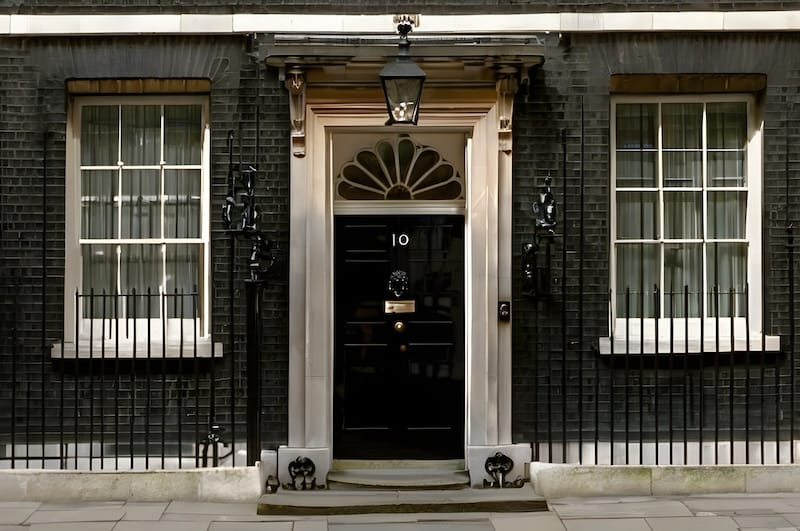Polly Botsford looks at legally trained PMs of the past and the potential impact of Starmer in No.10

With betting odds at an astonishing 1/33 that Labour will win the election on July 4 and Sir Keir Starmer our next PM, the UK looks set to have a barrister in Downing Street. It’s not clear, however, whether this will be a boon for the legal profession.
A review of the Labour Party’s manifesto launched yesterday is a mixed bag. There are pledges for increased policing and more and better prosecutions, particularly in relation to violence against women. Legal aid gets a passing mention (for victims of disasters or state-related deaths), but nothing on a more general increase for criminal or civil cases, and no details on how the next government might deal with the court backlog apart from allowing associate prosecutors to work on cases. There are, however, specific pledges around historic injustices: such as responding to the Grenfell Inquiry and appointing a Windrush Commissioner.
It might be that Starmer, a barrister and KC from Doughty Street Chambers and once head of the Crown Prosecution Service, isn’t talking too much about these issues because they don’t win votes. But the shadow justice secretary and other labour leaders have repeatedly stated that they won’t commit to policies that they can’t afford in order to maintain a profile of being fiscally responsible rather than spendthrift.
There may yet be reason to cheer, however. Lawyers tend to indirectly benefit from a heavy legislative agenda: clients need advice in times of changes in the law. And in its most recent period in office, the Labour Party has tended to bring in more new legislation than the Conservatives — by some margin. A rough comparison of the total pieces of primary legislation passed between 2000 and 2010 (Labour) and 2010 and 2020 (Conservative) was 345 to 285. That’s 20% more under Labour. Many of the ideas in the Labour Manifesto could lead to legislative change such as in immigration, employment, housing, and so on. There are even minor reform proposals for the House of Lords that will engage constitutional lawyers’ brains. All in all, the chances are lawyers will be much busier if Labour are successful (particularly if they have a whopping parliamentary majority). All in all, the chances are lawyers will be much busier if Labour are successful (particularly if they have a whopping parliamentary majority).
Starmer the charmer?
Starmer’s legal career has been nothing less than wig-droppingly impressive. He has already had a stellar career at the bar as a human rights barrister and was a founder member of Doughty Street — a top human rights set that boasts members including Kirsty Brimelow KC and Amal Clooney. During this time he won an award from for his outstanding contribution to pro bono work. His career then took a surprise turn when he accepted the post of director of Public Prosecutions where he oversaw the prosecution of MPs for misuse of expenses, amongst other high profile issues. He won his knighthood for services to criminal justice. In terms of past PMs’ legal backstory, there is no comparison in history.
There have, of course, been quite a few past Prime Ministers that have been legally trained. In the 18th and 19th centuries, Britain had leaders like William Pitt the Younger, Henry Addington and Lord Grenville, who were trained at the bar (all at Lincoln’s Inn) and practiced for a brief time until politics took over. At the time, the Bar was one of the few ways that an aristocrat could, respectably, earn a living. But this was not about having a supercharged legal career.
It is not until the dawn of the 20th century that practising lawyers make their appearance at No.10, with the likes of Asquith (called to the bar in 1876 — Lincoln’s Inn — and took silk in 1890) and Clement Attlee (Inner Temple). Famously, Margaret Thatcher was, very briefly, a tax barrister, and Tony Blair studied jurisprudence at Oxford, and then became a barrister (Lincoln’s Inn again). He was pupil-master to Lord Irvine, who set up a new chambers, 11 King’s Bench Walk, where Blair met his wife, Cherie. (Irvine would go on to become Blair’s Lord Chancellor.) David Lloyd George (PM from 1916-22), who ran his own practice, remains the only solicitor to become prime minister.
Former practising lawyers also feature on the back benches of parliament. Research estimates that as much as 8% of MPs (for Labour and Conservative) were members of the legal profession immediately prior to winning a seat in 2019. Indeed, one brave City lawyer, the current head of pro bono at Mayer Brown, Mehreen Malik, is standing as the Conservative candidate against Starmer in the London seat of Holborn and St Pancras. The odds are very much stacked against Malik; just ask the bookies.
Polly Botsford is a freelance law and current affairs writer.


